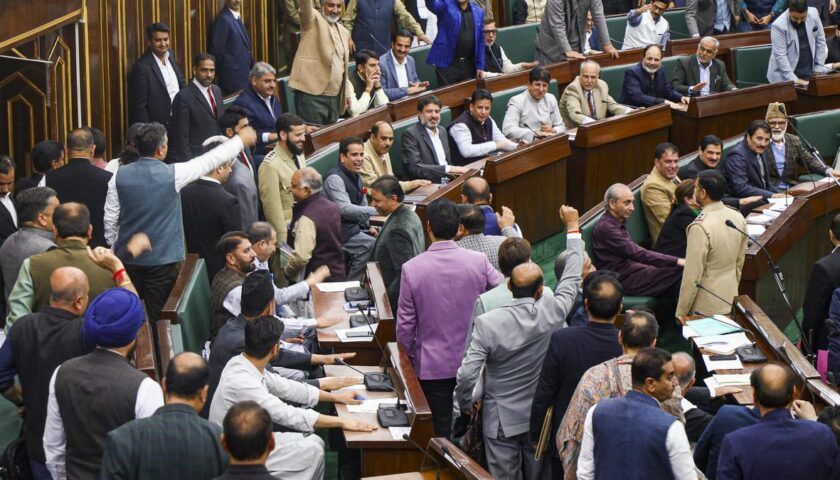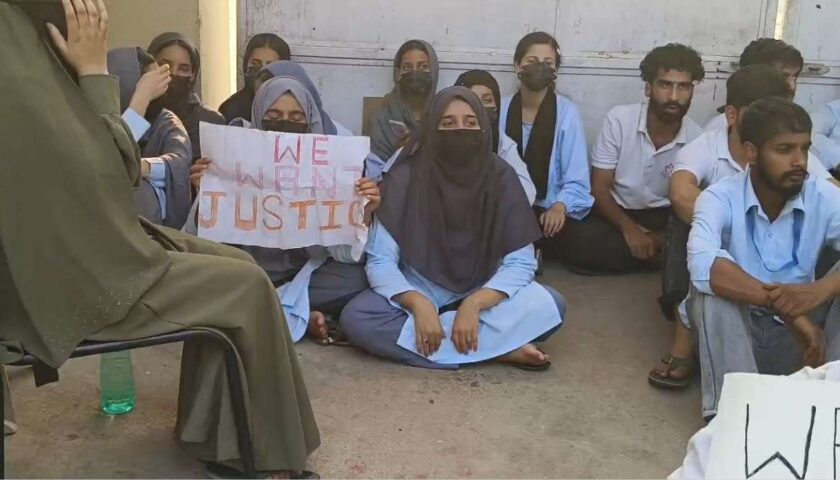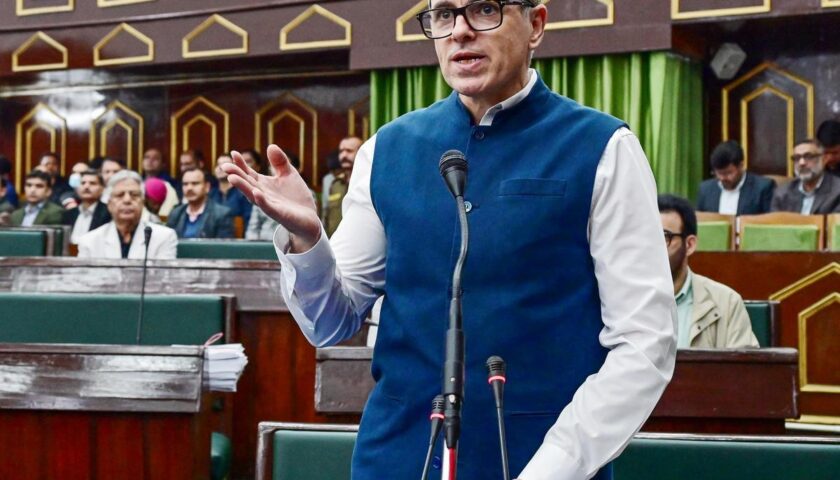Grappling with the question of losing their cultural identity in exile, some events still vividly bring displaced Kashmiri Pandits together out of nostalgia for Kashmir.
 A book release function in Jammu today turned into a platform for community members to pour their hearts out over the plight of their literature in exile.
A book release function in Jammu today turned into a platform for community members to pour their hearts out over the plight of their literature in exile.
It was the occasion of the release of ‘Bhagwat’, a poetic translation of the Bhagavad Gita into Kashmiri language by late Kashi Nath Bagwan, a prominent Pandit writer.
The first-of-its-kind Kashmiri translation of the Bhagavad Gita was released by Somawati, Bagwan’s wife, amid applause by hundreds of people who had gathered on the occasion.
The book release function was organised by Kashi Nath Bagwan Memorial Trust at the jam-packed auditorium of the Government College for Women at Gandhi Nagar.
“There are rare occasions these days where you will find Kashmiri Pandits together as they got scattered in every nook and corner of country in 1990,” said Ashok Raina, chairman of the Trust.
“Despite the pain of migration and leaving his home, Bagwan translated 17,800 verses of Bhagavad Gita into poetry style in Kashmiri. We are overwhelmed by the response of people who participated in the event,” he said.
Since the migration of 3.5 lakh Pandits from the Valley after eruption of militancy, writers and intellectuals from the community had been trying to preserve their heritage and cultural identity, under threat due to loss of their homeland.
After the exodus, many writers had to face the ignominy of living in tents and then in one-room tenements as refugees in their own country, a stigma for which they were not responsible. They felt let down by both state and Central governments and by Indian society as a whole as well as by the majority community in the Valley.
“The pain of leaving their homeland has acted as motivation for Pandit writers. An entire community was dislodged from their habitat, but strong traditions continue to bind them,” said Dr Rakesh Raina, who attended the event. “Such community functions allow them to meet and discuss ways to further save old traditions and promote Kashmiri language.”




